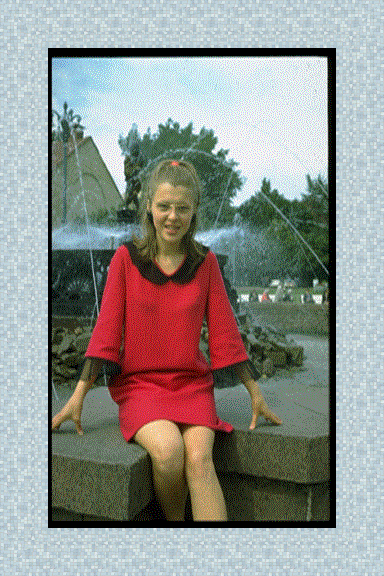
The premature death of that celebrated young monarch, Edward VI, occasioned the most extraordinary and wonderful occurrences, which had ever existed from the times of our blessed Lord and Savior’s incarnation in human shape. This melancholy event became speedily a subject of general regret. The succession to the British throne was soon made a matter of contention and the scenes which ensued were a demonstration of the serious affliction in which the kingdom was involved. As his loss to the nation was more and more unfolded, the remembrance of his government was more and more the basis of grateful recollection. The very awful prospect, which was soon presented to the friends of Edward’s administration, under the direction of his counselors and servants, was a contemplation which the reflecting mind was compelled to regard with most alarming apprehensions. The rapid approaches which were made towards a total reversion of the proceedings of the young king’s reign, denoted the advances which were thereby represented to an entire resolution in the management of public affairs both in Church and state.
Alarmed for the condition in which the kingdom was likely to be involved by the king’s death, an endeavor to prevent the consequences, which were but too plainly foreseen, was productive of the most serious and fatal effects. The king, in his long and lingering affliction, was induced to make a will, by which he bequeathed the English crown to Lady Jane, the daughter of the duke of Suffolk, who had been married to Lord Guilford, the son of the duke of Northumberland, and was the granddaughter of the second sister of King Henry, by Charles, duke of Suffolk. By this will, the succession of Mary and Elizabeth, his two sisters, was entirely superseded, from an apprehension of the returning system of popery; and the king’s council, with the chief of the nobility, the lord-mayor of the city of London, and almost all the judges and the principal lawyers of the realm, subscribed their names to this regulation, as a sanction to the measure. Lord Chief justice Hale, though a true Protestant and an upright judge, alone declined to unite his name in favor of the Lady Jane, because he had already signified his opinion that Mary was entitled to assume the reins of government. Others objected to Mary’s being placed on the throne, on account of their’ fears that she might marry a foreigner, and thereby bring the crown into considerable danger. Her partiality to popery also left little doubt on the minds of any, that she would be induced to revive the dormant interests of the pope, and change the religion which had been used both in the days of her father, King Henry, and in those of her brother Edward: for in all his time she had manifested the greatest stubbornness and inflexibility of temper, as must be obvious from her letter to the lords of the council, whereby she put in her claim to the crown, on her brother’s decease.

When this happened, the nobles, who had associated to prevent Mary’s succession, and had been instrumental in promoting, and, perhaps, advising the measures of Edward, speedily proceeded to proclaim Lady Jane Gray, to be queen of England, in the city of London and various other populous cities of the realm. Though young, she possessed talents of a very superior nature, and her improvements under a most excellent tutor had given her many very great advantages.
Her reign was of only five days’ continuance, for Mary, having succeeded by false promises in obtaining the crown, speedily commenced the execution of her avowed intention of extirpating and burning every Protestant. She was crowned at Westminster in the usual form, and her elevation was the signal for the commencement of the bloody persecution which followed.
Having obtained the sword of authority, she was not sparing in its exercise. The supporters of Lady Jane Gray were destined to feel its force. The duke of Northumberland was the first who experienced her savage resentment. Within a month after his confinement in the Tower, he was condemned, and brought to the scaffold, to suffer as a traitor. From his varied crimes, resulting out of a sordid and inordinate ambition, he died unpitied and unlamented.
The changes, which followed with rapidity, unequivocally declared that the queen was disaffected to the present state of religion. Dr. Poynet was displaced to make room for Gardiner to be bishop of Winchester, to whom she also gave the important office of lordchancellor. Dr. Ridley was dismissed from the see of London, and Bonne introduced. J. Story was put out of the bishopric of Chichester, to admit Dr. Day. J. Hooper was sent prisoner to the Fleet, and Dr. Heath put into the see of Worcester. Miles Coverdale was also excluded from Exeter, and Dr. Vesie placed in that diocese. Dr. Tonstall was also promoted to the see of Durham. These things being marked and perceived, great heaviness and discomfort grew more and more to all good men’s hearts; but to the wicked great rejoicing. They that could dissemble took no great care how the matter went; but such, whose consciences were joined with the truth, perceived already coals to be kindled, which after should be the destruction of many a true Christian.

The next victim was the amiable Lady Jane Gray, who, by her acceptance of the crown at the earnest solicitations of her friends, incurred the implacable resentment of the bloody Mary. When she first mounted the scaffold, she spoke to the spectators in this manner: “Good people, I am come hither to die, and by a law I am condemned to the same. The fact against the queen’s highness was unlawful, and the consenting thereunto by me: but, touching the procurement and desire thereof by me, or on my behalf, I do wash my hands thereof in innocence before God, and the face of you, good Christian people, this day:” and therewith she wrung her hands, wherein she had her book. Then said she, “I pray you all, good Christian people, to bear me witness, that I die a good Christian woman, and that I do look to be saved by no other mean, but only by the mercy of God in the blood of His only Son Jesus Christ: and I confess that when I did know the Word of God, I neglected the same, loved myself and the world, and therefore this plague and punishment is happily and worthily happened unto me for my sins; and yet I thank God, that of His goodness He hath thus given me a time and a respite to repent. And now, good people, while I am alive, I pray you assist me with your prayers.” And then, kneeling down, she turned to Feckenham, saying, “Shall I say this Psalm?” and he said, “Yea.” Then she said the Psalm of Miserere mei Deus, in English, in a most devout manner throughout to the end; and then she stood up, and gave her maid, Mrs. Ellen, her gloves and handkerchief, and her book to Mr. Bruges; and then she untied her gown, and the executioner pressed upon her to help her off with it: but she, desiring him to let her alone, turned towards her two gentlewomen, who helped her off therewith, and also with her frowes, paaft, and neckerchief, giving to her a fair handkerchief to put about her eyes.
Then the executioner kneeled down, and asked her forgiveness, whom she forgave most willingly. Then he desired her to stand upon the straw, which doing, she saw the block. Then she said, “I pray you, despatch me quickly.” Then she kneeled down, saying, “Will you take it off before I lay me down?” And the executioner said, “No, madam.” Then she tied a handkerchief about her eyes, and feeling for the block, she said, “What shall I do? Where is it? Where is it?” One of the standers- by guiding her thereunto, she laid her head upon the block, and then stretched forth her body, and said, “Lord, into Thy hands I commend my spirit;” and so finished her life, in the year of our Lord 1554, the twelfth day of February, about the seventeenth year of her age.
Thus died Lady Jane; and on the same day Lord Guilford, her husband, one of the duke of Northumberland’s sons, was likewise beheaded, two innocents in comparison with them that sat upon them. For they were both very young, and ignorantly accepted that which others had contrived, and by open proclamation consented to take from others, and give to them.
Touching the condemnation of this pious lady, it is to be noted that judge Morgan, who gave sentence against her, soon after he had condemned her, fell mad, and in his raving cried out continually to have the Lady Jane taken away from him, and so he ended his life.
On the twenty-first day of the same month, Henry, duke of Suffolk, was beheaded on Tower-hill, the fourth day after his condemnation: about which time many gentlemen and yeomen were condemned, whereof some were executed at London, and some in the country. In the number of whom was Lord Thomas Gray, brother to the said duke, being apprehended not long after in North Wales, and executed for the same. Sir Nicholas Throgmorton, also, very narrowly escaped.

John Rogers was educated at Cambridge, and was afterward many years chaplain to the merchant adventurers at Antwerp in Brabant. Here he met with the celebrated martyr William Tyndale, and Miles Coverdale, both voluntary exiles from their country for their aversion to popish superstition and idolatry. They were the instruments of his conversion; and he united with them in that translation of the Bible into English, entitled “The Translation of Thomas Matthew.” From the Scriptures he knew that unlawful vows may be lawfully broken; hence he married, and removed to Wittenberg in Saxony, for the improvement of learning; and he there learned the Dutch language, and received the charge of a congregation, which he faithfully executed for many years. On King Edward’s accession, he left Saxony to promote the work of reformation in England; and, after some time, Nicholas Ridley, then bishop of London, gave him a prebend in St. Paul’s Cathedral, and the dean and chapter appointed him reader of the divinity lesson there. Here he continued until Queen Mary’s succession to the throne, when the Gospel and true religion were banished, and the Antichrist of Rome, with his superstition and idolatry, introduced.
The circumstance of Mr. Rogers having preached at Paul’s cross, after Queen Mary arrived at the Tower, has been already stated. He confirmed in his sermon the true doctrine taught in King Edward’s time, and exhorted the people to beware of the pestilence of popery, idolatry, and superstition. For this he was called to account, but so ably defended himself that, for that time, he was dismissed. The proclamation of the queen, however, to prohibit true preaching, gave his enemies a new handle against him. Hence he was again summoned before the council, and commanded to keep his house. He did so, though he might have escaped; and though he perceived the state of the true religion to be desperate. He knew he could not want a living in Germany; and he could not forget a wife and ten children, and to seek means to succor them. But all these things were insufficient to induce him to depart, and, when once called to answer in Christ’s cause, he stoutly defended it, and hazarded his life for that purpose.
After long imprisonment in his own house, the restless Bonner, bishop of London, caused him to be committed to Newgate, there to be lodged among thieves and murderers.
After Mr. Rogers had been long and straitly imprisoned, and lodged in Newgate among thieves, often examined, and very uncharitably entreated, and at length unjustly and most cruelly condemned by Stephen Gardiner, bishop of Winchester, the fourth day of February, in the year of our Lord 1555, being Monday in the morning, he was suddenly warned by the keeper of Newgate’s wife, to prepare himself for the fire; who, being then sound asleep, could scarce be awaked. At length being raised and awaked, and bid to make haste, then said he, “If it be so, I need not tie my points.” And so was had down, first to bishop Bonner to be degraded: which being done, he craved of Bonner but one petition; and Bonner asked what that should be. Mr. Rogers replied that he might speak a few words with his wife before his burning, but that could not be obtained of him.
When the time came that he should ‘be brought out of Newgate to Smithfield, the place of his execution, Mr. Woodroofe, one of the sheriffs, first came to Mr. Rogers, and asked him if he would revoke his abominable doctrine, and the evil opinion of the Sacrament of the altar. Mr. Rogers answered, “That which I have preached I will seal with my blood.” Then Mr. Woodroofe said, “Thou art an heretic.” “That shall be known,” quoth Mr. Rogers, “at the Day of judgment.” “Well,” said Mr. Woodroofe, “I will never pray for thee.” “But I will pray for you,” said Mr. Rogers; and so was brought the same day, the fourth of February, by the sheriffs, towards Smithfield, saying the Psalm Miserere by the way, all the people wonderfully rejoicing at his constancy; with great praises and thanks to God for the same. And there in the presence of Mr. Rochester, comptroller of the queen’s household, Sir Richard Southwell, both the sheriffs, and a great number of people he was burnt to ashes, washing his hands in the flame as he was burning. A little before his burning, his pardon was brought, if he would have recanted; but he utterly refused it. He was the first martyr of all the blessed company that suffered in Queen Mary’s time that gave the first adventure upon the fire. His wife and children, being eleven in number, ten able to go, and one sucking at her breast, met him by the way, as he went towards Smithfield. This sorrowful sight of his own flesh and blood could nothing move him, but that he constantly and cheerfully took his death with wonderful patience, in the defense and quarrel of the Gospel of Christ.”

Mr. Saunders, after passing some time in the school of Eaton, was chosen to go to King’s College in Cambridge, where he continued three years, and profited in knowledge and learning very much for that time. Shortly after he quitted the university, and went to his parents, but soon returned to Cambridge again to his study, where he began to add to the knowledge of the Latin, the study of the Greek and Hebrew tongues, and gave himself up to the study of the Holy Scriptures, the better to qualify himself for the office of preacher.
In the beginning of King Edward’s reign, when God’s true religion was introduced, after license obtained, he began to preach, and was so well liked of them who then had authority that they appointed him to read a divinity lecture in the College of Fothringham. The College of Fothringham being dissolved, he was placed to be a reader in the minister at Litchfield. After a certain space, he departed from Litchfield to a benefice in Leicestershire called Church-langton, where he held a residence, taught diligently, and kept a liberal house. Thence he was orderly called to take a benefice in the city of London namely, All-hallows in Bread-street. After this he preached at Northhampton, nothing meddling with the state, but boldly uttering his conscience against the popish doctrines which were likely to spring up again in England, as a just plague for the little love which the English nation then bore to the blessed Word of God, which had been so plentifully offered unto them.
The queen’s party who were there, and
heard him, were highly displeased with him for his sermon, and
for it kept him among them as a prisoner. But partly for love
of his brethren and friends, who were chief actors for the queen
among them, and partly because there was no law broken by his
preaching, they dismissed him.
Some of his friends, perceiving such fearful menacing, counseled him to fly out of the realm, which he refused to do. But seeing he was with violence kept from doing good in that place, he returned towards London, to visit his flock.
In the afternoon of Sunday, October 15, 1554, as he was reading in his church to exhort his people, the bishop of London interrupted him, by sending an officer for him.
His treason and sedition the bishop’s charity was content to let slip until another time, but a heretic he meant to prove him, and all those, he said, who taught and believed that the administration of the Sacraments, and all orders of the Church, are the most pure, which come the nearest to the order of the primitive Church.
After much talk concerning this matter,
the bishop desired him to write what he believed of transubstantiation.
Lawrence Saunders did so, saying, “My Lord, you seek my blood,
and you shall have it: I pray God that you may be so baptized
in it that you may ever after loathe blood-sucking, and become
a better man.” Upon being closely charged with contumacy,
the severe replies of Mr. Saunders to the bishop, (who had before,
to get the favor of Henry VIII written and set forth in print,
a book of true obedience, wherein he had openly declared Queen
Mary to be a bastard) so irritated him that he exclaimed, “Carry
away this frenzied fool to prison.”
After this good and faithful martyr had been kept in prison one year and a quarter, the bishops at length called him, as they did his fellow-prisoners, openly to be examined before the queen’s council.
His examination being ended, the officers led him out of the place, and stayed until the rest of his fellow-prisoners were likewise examined, that they might lead them all together to prison.
After his excommunication and delivery over to the secular power, he was brought by the sheriff of London to the Compter, a prison in his own parish of Bread-street, at which he rejoiced greatly, both because he found there a fellow-prisoner, Mr. Cardmaker, with whom he had much Christian and comfortable discourse; and because out of prison, as before in his pulpit, he might have an opportunity of preaching to his parishioners. On the fourth of February, Bonner, bishop of London, came to the prison to degrade him; the day following, in the morning the sheriff of London delivered him to certain of the queen’s guard, who were appointed to carry him to the city of Coventry, there to be burnt.
When they had arrived at Coventry, a poor shoemaker, who used to serve him with shoes, came to him, and said, “O my good master, God strengthen and comfort you.” “Good shoemaker,” Mr. Saunders replied, “I desire thee to pray for me, for I am the most unfit man for this high office, that ever was appointed to it; but my gracious God and dear Father is able to make me strong enough.” The next day, being the eighth of February, 1555, he was led to the place of execution, in the park, without the city. He went in an old gown and a shirt, barefooted, and oftentimes fell flat on the ground, and prayed. When he was come to nigh the place, the officer, appointed to see the execution done, said to Mr. Saunders that he was one of them who marred the queen’s realm, but if he would recant, there was pardon for him. “Not I,” replied the holy martyr, “but such as you have injured the realm. The blessed Gospel of Christ is what I hold; that do I believe, that have I taught, and that will I never revoke!” Mr. Saunders then slowly moved towards the fire, sank to the earth and prayed; he then rose up, embraced the stake, and frequently said, “Welcome, thou cross of Christ! welcome everlasting life!” Fire was then put to the fagots, and, he was overwhelmed by the dreadful flames, and sweetly slept in the Lord Jesus.

John Hooper, student and graduate in the University of Oxford, was stirred with such fervent desire to the love and knowledge of the Scriptures that he was compelled to move from thence, and was retained in the house of Sir Thomas Arundel, as his steward, until Sir Thomas had intelligence of his opinions and religion, which he in no case did favor, though he exceedingly favored his person and condition and wished to be his friend. Mr. Hooper now prudently left Sir Thomas’ house and arrived at Paris, but in a short time returned to England, and was retained by Mr. Sentlow, until the time that he was again molested and sought for, when he passed through France to the higher parts of Germany; where, commencing acquaintance with learned men, he was by them free and lovingly entertained, both at Basel, and especially at Zurich, by Mr. Bullinger, who was his singular friend; here also he married his wife, who was a Burgonian, and applied very studiously to the Hebrew tongue.
At length, when God saw it good to stay the bloody time of the six articles, and to. give us King Edward to reign over this realm, with some peace and rest unto the Church, amongst many other English exiles, who then repaired homeward, Mr. Hooper also, moved in conscience, thought not to absent himself, but seeing such a time and occasion, offered to help forward the Lord’s work, to the uttermost of his ability.
When Mr. Hooper had taken his farewell of Mr. Bullinger, and his friends in Zurich, he repaired again to England in the reign of King Edward VI, and coming to London, used continually to preach, most times twice, or at least once a day.
In his sermons, according to his accustomed manner, he corrected sin, and sharply inveighed against the iniquity of the world and the corrupt abuses of the Church. The people in great flocks and companies daily came to hear his voice, as the most melodious sound and tune of Orpheus’ harp, insomuch, that oftentimes when he was preaching, the church would be so full that none could enter farther than the doors thereof. In his doctrine he was earnest, in tongue eloquent, in the Scriptures perfect, in pains indefatigable, in his life exemplary.
Having preached before the king’s majesty, he was soon after made bishop of Gloucester. In that office he continued two years, and behaved himself so well that his very enemies could find no fault with him, and after that he was made bishop of Worcester.
Dr. Hooper executed the office of a most careful and vigilant pastor, for the space of two years and more, as long as the state of religion in King Edward’s time was sound and flourishing.
After he had been cited to appear before Bonner and Dr. Heath he was led to the Council, accused falsely of owing the queen money, and in the next year, 1554, he wrote an account of his severe treatment during near eighteen months’ confinement in the Fleet, and after his third examination, January 28, 1555, at St. Mary Overy’s, he, with the Rev. Mr. Rogers, was conducted to the Compter in Southwark, there to remain until the next day at nine o’clock, to see whether they would recant. “Come, Brother Rogers,” said Dr. Hooper, “must we two take this matter first in hand, and begin to fry in these fagots?” “Yes, Doctor,” said Mr. Rogers, “by God’s grace.” “Doubt not,” said Dr. Hooper, “but God will give us strength;” and the people so applauded their constancy that they had much ado to pass.
January 29, Bishop Hooper was degraded and condemned, and the Rev. Mr. Rogers was treated in like manner. At dark, Dr. Hooper was led through the city to Newgate; notwithstanding this secrecy, many people came forth to their doors with lights, and saluted him, praising God for his constancy.
During the few days he was in Newgate, he was frequently visited by Bonner and others, but without avail. As Christ was tempted, so they tempted him, and then maliciously reported that he had recanted. The place of his martyrdom being fixed at Gloucester, he rejoiced very much, lifting up his eyes and hands to heaven, and praising God that he saw it good to send him among the people over whom he was pastor, there to confirm with his death the truth which he had before taught them.
On February 7, he came to Gloucester, about five o’clock, and lodged at one Ingram’s house. After his first sleep, he continued in prayer until morning; and all the day, except a little time at his meals, and when conversing such as the guard kindly permitted to speak to him, he spent in prayer.
Sir Anthony Kingston, at one time Dr. Hooper’s good friend, was appointed by the queen’s letters to attend at his execution. As soon as he saw the bishop he burst into tears. With tender entreaties he exhorted him to live. “True it is,” said the bishop, “that death is bitter, and life is sweet; but alas! consider that the death to come is more bitter, and the life to come is more sweet.”
The same day a blind boy obtained leave to be brought into Dr. Hooper’s presence. The same boy, not long before, had suffered imprisonment at Gloucester for confessing the truth. “Ah! poor boy,” said the bishop, “though God hath taken from thee thy outward sight, for what reason He best knoweth, yet He hath endued thy soul with the eye of knowledge and of faith. God give thee grace continually to pray unto Him, that thou lose not that sight, for then wouldst thou indeed be blind both in body and soul.”

When the mayor waited upon him preparatory to his execution, he expressed his perfect obedience, and only requested that a quick fire might terminate his torments. After he had got up in the morning, he desired that no man should be suffered to come into the chamber, that he might be solitary until the hour of execution.
About eight o’clock, on February 9, 1555, he was led forth, and many thousand persons were collected, as it was market-day. All the way, being straitly charged not to speak, and beholding the people, who mourned bitterly for him, he would sometimes lift up his eyes towards heaven, and look very cheerfully upon such as he knew: and he was never known, during the time of his being among them, to look with so cheerful and ruddy a countenance as he did at that time. When he came to the place appointed where he should die, he smilingly beheld the stake and preparation made for him, which was near unto the great elm tree over against the college of priests, where he used to preach.
Now, after he had entered into prayer, a box was brought and laid before him upon a stool, with his pardon from the queen, if he would turn. At the sight whereof he cried, “If you love my soul, away with it!” The box being taken away, Lord Chandois said, “Seeing there is no remedy; despatch him quickly.”
Command was now given that the fire should be kindled. But because there were not more green fagots than two horses could carry, it kindled not speedily, and was a pretty while also before it took the reeds upon the fagots. At length it burned about him, but the wind having full strength at that place, and being a lowering cold morning, it blew the flame from him, so that he was in a manner little more than touched by the fire.
Within a space after, a few dry fagots were brought, and a new fire kindled with fagots, (for there were no more reeds) and those burned at the nether parts, but had small power above, because of the wind, saving that it burnt his hair and scorched his skin a little. In the time of which fire, even as at the first flame, he prayed, saying mildly, and not very loud, but as one without pain, “O Jesus, Son of David, have mercy upon me, and receive my soul!” After the second fire was spent, he wiped both his eyes with his hands, and beholding the people, he said with an indifferent, loud voice, “For God’s love, good people, let me have more fire!” and all this while his nether parts did burn; but the fagots were so few that the flame only singed his upper parts.
The third fire was kindled within a while after, which was more extreme than the other two. In this fire he prayed with a loud voice, “Lord Jesus, have mercy upon me! Lord Jesus receive my spirit!” And these were the last words he was heard to utter. But when he was black in the mouth, and his tongue so swollen that he could not speak, yet his lips went until they were shrunk to the gums: and be knocked his breast with his hands until one of his arms fell off, and then knocked still with the other, while the fat, water, and blood dropped out at his fingers’ ends, until by renewing the fire, his strength was gone, and his hand clave fast in knocking to the iron upon his breast. Then immediately bowing forwards, he yielded up his spirit.
Thus was he three quarters of an hour or more in the fire. Even as a lamb, patiently he abode the extremity thereof, neither moving forwards, backwards, nor to any side; but he died as quietly as a child in his bed. And he now reigneth, I doubt not, as a blessed martyr in the joys of heaven, prepared for the faithful in Christ before the foundations of the world; for whose constancy all Christians are bound to praise God.

Dr. Rowland Taylor, vicar of Hadlev, in Suffolk, was a man of eminent learning, and had been admitted to the degree of doctor of the civil and canon law.
His attachment to the pure and uncorrupted principles of Christianity recommended him to the favor and friendship of Dr. Cranmer, archbishop of Canterbury, with whom he lived a considerable time, until through his interest he obtained the living at Hadley.
Not only was his word a preaching unto them, but all his life and conversation was an example of unfeigned Christian life and true holiness. He was void of all pride, humble and meek as an child: so that none were so poor but they might boldly, as unto their father, resort unto him; neither was his lowliness childish or fearful, but, as occasion, time, and place required, he would be stout in rebuking the sinful and evildoers; so that none was so rich but he would tell them plainly his fault, with such earnest and grave rebukes as became a good curate and pastor. He was a man very mild, void of all rancor, grudge or evil will; ready to do good to all men; readily forgiving his enemies; and never sought to do evil to any.
To the poor that were blind, lame, sick, bedrid, or that had many children, he was a very father, a careful patron, and diligent provider, insomuch that he caused the parishioners to make a general provision for them; and he himself (beside the continual relief that they always found at his house) gave an honest portion yearly to the common almsbox. His wife also was an honest, discreet, and sober matron, and his children well nurtured, brought up in the fear of God and good learning.
He was a good salt of the earth, savorly biting the corrupt manners of evil men; a light in God’s house, set upon a candlestick for all good men to imitate and follow.
Thus continued this good shepherd among his flock, governing and leading them through the wilderness of this wicked world, all the days of the most innocent and holy king of blessed memory, Edward VI. But on his demise, and the succession of Queen Mary to the throne, he escaped not the cloud that burst on so many beside; for two of his parishioners, Foster, an attorney, and Clark, a tradesman, out of blind zeal, resolved that Mass should be celebrated, in all its superstitious forms, in the parish church of Hadley, on Monday before Easter. This Dr. Taylor, entering the church, strictly forbade; but Clark forced the Doctor out of the church, celebrated Mass, and immediately informed the lord-chancellor, bishop of Winchester of his behavior, who summoned him to appear, and answer the complaints that were alleged against him.
The doctor upon the receipt of the summons, cheerfully prepared to obey the same; and rejected the advice of his friends to fly beyond sea. When Gardiner saw Dr. Taylor, he, according to his conunon custom, reviled him. Dr. Taylor heard his abuse patiently, and when the bishop said, “How darest thou look me in the face I knowest thou not who I am?” Dr. Taylor replied, “You are Dr. Stephen Gardiner, bishop of Winchester, and lord-chancellor, and yet but a mortal man. But if I should be afraid of your lordly looks, why fear ye not God, the Lord of us all? With what countenance will you appear before the judgment seat of Christ, and answer to your oath made first unto King Henry VIII, and afterward unto King Edward VI, his son?”
A long conversation ensued, in which Dr.
Taylor was so piously collected and severe upon his antagonist,
that he exclaimed: “Thou art a blasphemous heretic! Thou
indeed blasphemist the blessed Sacrament, (here he put off his
cap) and speakest against the holy Mass, which is made a sacrifice
for the quick and the dead.” The bishop afterward committed
him into the king’s bench.
When Dr. Taylor came there, he found the virtuous
and vigilant preacher of God’s Word, Mr. Bradford; who equally
thanked God that He had provided him with such a comfortable fellow-prisoner;
and they both together praised God, and continued in prayer, reading
and exhorting one another.
After Dr. Taylor had lain some time in prison, he was cited to appear in the arches of Bow-church.
Dr. Taylor being condemned, was committed to the Clink, and the keepers were charged to treat him roughly; at night he was removed to the Poultry Compter.
When Dr. Taylor had lain in the Compter about a week on the fourth of February, Bonner came to degrade him, bringing with him such ornaments as appertained to the massing mummery; but the Doctor refused these trappings until they were forced upon him.
The night after he was degraded his wife came with John Hull, his servant, and his son Thomas, and were by the gentleness of the keepers permitted to sup with him.

After supper, walking up and down, he gave God thanks for His grace, that had given him strength to abide by His holy Word. With tears they prayed together, and kissed one another. Unto his son Thomas he gave a Latin book, containing the notable sayings of the old martyrs, and in the end of that he wrote his testament:
“I say to my wife, and to my children, The Lord gave you unto me, and the Lord hath taken me from you, and you from me: blessed be the name of the Lord! I believe that they are blessed which die in the Lord. God careth for sparrows, and for the hairs of our heads. I have ever found Him more faithful and favorable, than is any father or husband. Trust ye therefore in Him by the means of our dear Savior Christ’s merits: believe, love, fear, and obey Him: pray to Him, for He hath promised to help. Count me not dead, for I shall certainly live, and never die. I go before, and you shall follow after, to our long home.”
On the morrow the sheriff of London with his officers came to the Compter by two o’clock in the morning, and brought forth Dr. Taylor; and without any light led him to the Woolsack, an inn without Aldgate. Dr. Taylor’s wife, suspecting that her husband should that night be carried away, watched all night in St. Botolph’s church-porch beside Aldgate, having her two children, the one named Elizabeth, of thirteen years of age (whom, being left without father or mother, Dr. Taylor had brought up of alms from three years old), the other named Mary, Dr. Taylor’s own daughter.
Now, when the sheriff and his company came against St. Botolph’s church, Elizabeth cried, saying, “O my dear father! mother, mother, here is my father led away.” Then his wife cried, “Rowland, Rowland, where art thou ?”- for it was a very dark morning, that the one could not well see the other. Dr. Taylor answered, “Dear wife, I am here”; and stayed. The sheriff’s men would have led him forth, but the sheriff said, “Stay a little, masters, I pray you; and let him speak to his wife”; and so they stayed.
Then came she to him, and he took his daughter Mary in his arms; and he, his wife, and Elizabeth kneeled down and said the Lord’s Prayer, at which sight the sheriff wept apace, and so did divers others of the company. After they had prayed, he rose up and kissed his wife, and shook her by the hand, and said, “Farewell, my dear wife; be of good comfort, for I am quiet in my conscience. God shall stir up a father for my children.”
All the way Dr. Taylor was joyful and merry, as one that accounted himself going to a most pleasant banquet or bridal. He spake many notable things to the sheriff and yeomen of the guard that conducted him, and often moved them to weep, through his much earnest calling upon them to repent, and to amend their evil and wicked living. Oftentimes also he caused them to wonder and rejoice, to see him so constant and steadfast, void of all fear, joyful in heart, and glad to die.
When Dr. Taylor had arrived at Aldham Common, the place where be should suffer, seeing a great multitude of people, he asked, “What place is this, and what meaneth it that so much people are gathered hither?” It was answered, “It is Aldham Common, the place where you must suffer; and the people have come to look upon you.” Then he said, “Thanked be God, I am even at home”; and he alighted from his horse and with both hands rent the hood from his head.
His head had been notched and clipped like as a man would clip a fool’s; which cost the good bishop Bonner bad bestowed upon him. But when the people saw his reverend and ancient face, with a long white beard, they burst out with weeping tears, and cried, saying: “God save thee, good Dr. Taylor! Jesus Christ strengthen thee, and help thee! the Holy Ghost comfort thee!” with such other like good wishes.
When he had prayed, he went to the stake and kissed it, and set himself into a pitch barrel, which they had put for him to stand in, and stood with his back upright against the stake, with his hands folded together, and his eyes towards heaven, and continually prayed.
They then bound him with the chains, and having set up the fagots, one Warwick cruelly cast a fagot at him, which struck him on his head, and cut his face, so that the blood ran down. Then said Dr. Taylor, “O friend, I have harm enough; what needed that?”
Sir John Shelton standing by, as Dr. Taylor was speaking, and saying the Psalm Miserere in English, struck him on the lips: “You knave,” he said, “speak Latin: I will make thee.” At last they kindled the fire; and Dr. Taylor holding up both his hands, calling upon God, and said, “Merciful Father of heaven! for Jesus Christ, my Savior’s sake, receive my soul into Thy hands!” So be stood still without either crying or moving, with his hands folded together, until Soyce, with a halberd struck him on the head until his brains fell out, and the corpse fell down into the fire.